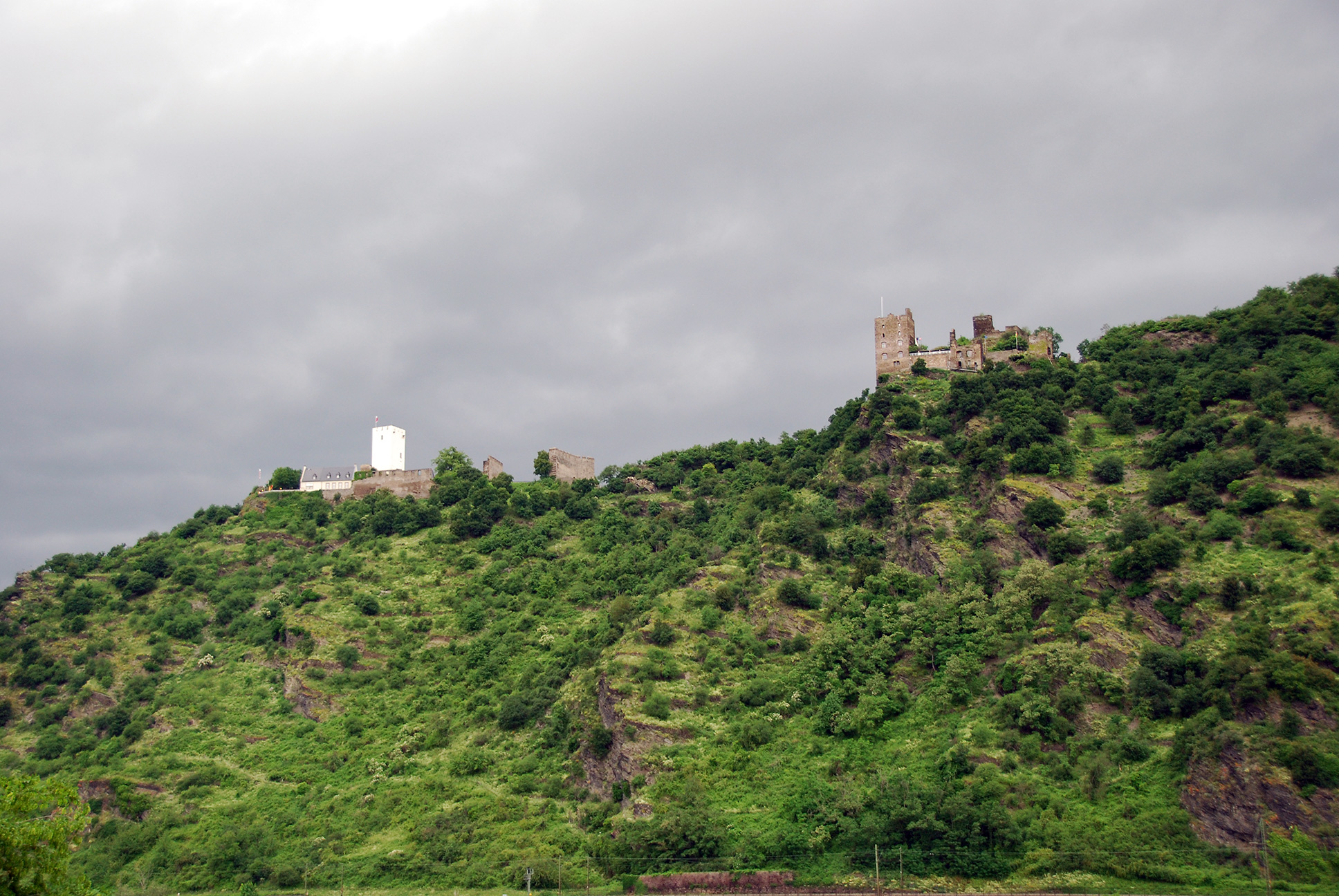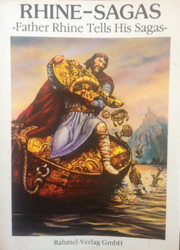The Hostile Brothers
High above the River Rhine near Kamp-Bornhofen stand two mighty castles of close proximity, Burg Sterrenberg and Burg Liebenstein, separated by a stone wall. Initially, Burg Sterrenberg was enough for the noble lords who took their name from it. This changed during the time of the knight Werner of Sterrenberg, a widower who lived in the castle with his two young sons. The elder of the sons was called Henry, and his young brother was Konrad, who was developing into a hothead and fighter. Konrad was a born knight; his older brother would have made a better monk. The law of inheritance, however, had made it otherwise.

Werner preferred the eldest son Henry as Konrad's birth cost the mother's life, for which his father never recovered, not that he ever let the innocent child feel this in any way. But as Konrad grew older, his face took on more and more the look of his mother, which was difficult for his father to bear. Despite being so different, the young brothers never quarreled with each other as children. The all-male household in the fortress of Sterrenberg lasted twelve years until Werner was invited to the funeral feast of the Bromser of Rudesheim. The deceased had also lost his wife early and brought up their only child alone. This child was a twelve-year-old girl named Angela, who was brought back to Burg Sterrenberg with Werner and quickly became the center of attention in this once womanless household.
A few years passed by, and Konrad began to show interest in Angela and woo her. Henry's eyes also lit up when he saw her, though he would still not dare tie the ribbon in her hair when she asked him to. Being the eldest son, the father encouraged Henry to woo Angela, which he eventually produced the nerve to do. It only became apparent to Henry that Konrad also liked her when Konrad held his fist under Henry's nose one day.
From that moment on, Angela was between two fires. The more she blossomed, the more critical it became that she choose between the two young suitors. It was a difficult choice as Konrad had more spirit, but Henry was the heir. In the end, she chose Henry. But Konrad could not back down and doubled his efforts to win her. All this did not go unnoticed by the father, who weighed a thousand possibilities of sending his younger son away for a while.
Eventually, a solution arrived without his help as Bernhard of Clairvaux showed up along the Rhine, seeking young recruits to join him on crusade. Werner forbade his heir to go, but Konrad took up the banner to join him. Before heading off, Konrad sought out Angela, who asked him, "Will I see you again?" He answered, "If you promise to wait for me, then indeed," he promised. She asked, "And you will keep your heart free for me?" This was the fatal question. "Heart and Hand," he swore, and his seriousness gave her strength and hope.
Konrad headed off, and Henry began wooing Angela again as his father wished, but things did not go as planned as Angela was unwilling to break her word to Konrad. She did not want to hear of any new suitors and spent days wishing for Konrad's return. The father eventually resigned himself to the inevitable and built a second castle for the new family branch and called it Liebenstein because he had made it for a pair in love. Years later, a ship sailed down the Rhine; its sails were decorated with the sign of the crusader knights. In the bow stood a knight in black armor who was astonished to see the newly built castle above and wanted to wave his hand when he saw a black flag flying above the tower of Burg Sterrenberg. He knew at once that his father was dead.
Standing beside Konrad on the boat stood an exotic beauty with black hair and glowing eyes. The woman from Greece had helped him escape from the Saracens holding him prisoner, but it was not only gratitude that brought her home with Konrad as his wife. Konrad knew Angela had once changed her feelings and that she could be faithful to him for five years never occurred to him. He came home assuming she had married his brother.
With the Greek woman on his hand, he stepped upon the drawbridge of Burg Sterrenberg and saw the coffin with his father's body under the high archway. He drew his sword to pay his last respects, but his brother Henry mistook the gesture and drew his sword, falling upon his brother. But there was more to his attack than a mistaken gesture, as Henry was harboring hatred for the more fortunate brother, wrath for the years of his thwarted love, and the desire for satisfaction on the part of the abandoned bride Angela.
Angela was overcome. Her heart was breaking. Sorrow due to the loss of her father figure, the disappointment in her love and faithfulness, and now the two brothers trying to kill each other was too much to take. She threw herself between the swords, nearly falling victim herself. Both brothers turned aside and sheathed their swords. As custom dictated, they followed their father's body to the grave. Alone, they each entered the castle which belonged to them and locked the doors.
Angela took to the veil, becoming a nun. Not long afterward, she died in the convent of Bornhofen, below the castles. Years later, Henry took another woman for his wife. Konrad built the famous "Quarrel Wall" between the two castles of Sterrenberg and Liebenstein. This wall, which still stands today, was created to prevent them from killing each other, the hostile brothers.
